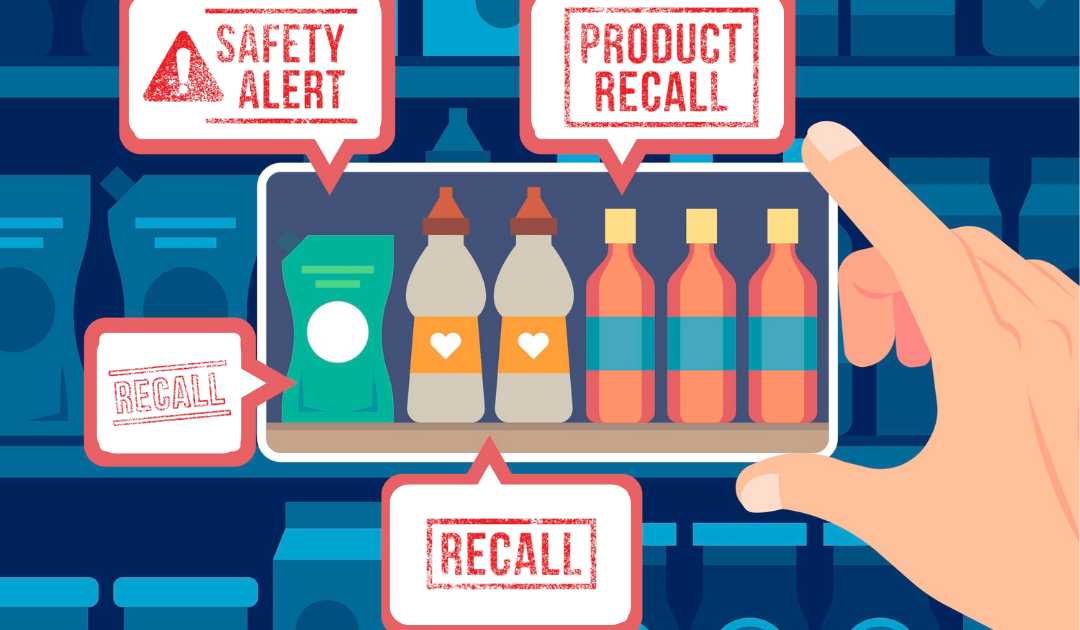Navigating a Food Recall

Navigating a Food Recall: Key Learnings from the Recent Botulism Scare
News of a major product recall can send a shiver down the spine of any food business owner, and the recent alert concerning a pasta topping is no exception. A UK-based supplier recently had to recall a product from the market due to potential contamination with Clostridium botulinum, the bacterium responsible for botulism.
While the immediate priority is always public safety, incidents like this offer invaluable learning opportunities for the entire industry. This is not about pointing fingers; it’s about understanding the cascading effects of a recall and, most importantly, how to fortify your own operations against such a crisis.
The Anatomy of a Critical Food Safety Failure
Botulism is a severe but rare illness. The bacteria that cause it, Clostridium botulinum, produce toxins in low-oxygen environments. This makes improperly processed canned or bottled goods, like the pasta topping in this case, a potential risk area.
A recall is the last line of defence when preventative measures have failed. It signals a breakdown somewhere in the production or supply chain—a failure in hazard analysis, a deviation from a critical control point, or an issue with a raw material supplier.
The Ripple Effect: The True Cost of a Recall
The financial impact of a recall is immediate and painful. It includes the cost of retrieving the product, lost stock, and the expense of public announcements. However, the indirect costs are often far greater and longer-lasting.
-
Brand Reputation: Trust is the cornerstone of any food brand. A single recall, especially one linked to a severe health risk like botulism, can erode years of consumer confidence overnight. In the age of social media, news spreads instantly, and managing the narrative becomes a monumental task.
-
Regulatory Scrutiny: A recall inevitably invites intense scrutiny from the Food Standards Agency (FSA) and local authorities. This can lead to further investigations, mandated changes to processes, and potentially hefty fines if negligence is proven.
-
Supply Chain Disruption: Recalls don’t just affect the producer. Retailers must pull products from shelves, and relationships with suppliers and distributors can be strained, leading to long-term commercial consequences.
From Reactive to Proactive: Fortifying Your Defences
Waiting for a crisis to happen is not a strategy. A robust food safety management system is non-negotiable. So, what are the key pillars of a proactive defence?
A Watertight HACCP Plan:
Your Hazard Analysis and Critical Control Points (HACCP) plan must be a living document. It should meticulously identify all potential hazards (biological, chemical, physical) at every stage of your process. For a product like a bottled sauce, controlling factors like pH, water activity, and the thermal process are critical to preventing the growth of Clostridium botulinum.
Supplier Assurance and Verification:
You are only as strong as your weakest link. Do you have a robust supplier approval programme? Are you conducting regular audits and requesting up-to-date certification from your suppliers? Trust is good, but verification is essential.
End-to-End Traceability:
In the event of an issue, how quickly can you trace a finished product back to a specific batch of raw materials? A precise and efficient traceability system allows you to isolate a problem rapidly, minimising the scale of a potential recall and demonstrating control to regulators and the public.
A Culture of Quality:
Food safety is everyone’s responsibility. Comprehensive and continuous staff training ensures that your team understands the “why” behind the processes. When employees are empowered to spot and report potential issues, they become your most valuable asset in risk prevention.
Conclusion: An Investment, Not an Expense
The recent pasta topping recall is a stark reminder that food safety can never be taken for granted. Viewing robust quality management systems, rigorous supplier checks, and ongoing staff training as an expense is a false economy. They are, in fact, the most critical investment you can make in the long-term health and sustainability of your business.
Is your organisation prepared to prevent, or effectively manage, a product recall? Ensuring your systems are not just compliant, but truly resilient, is the critical final step, and having an expert partner can make all the difference. Contact Fevquality today for a professional audit and gain the confidence that your business is protected.
To see how we have helped other businesses achieve excellence in food safety, browse our Client References.
